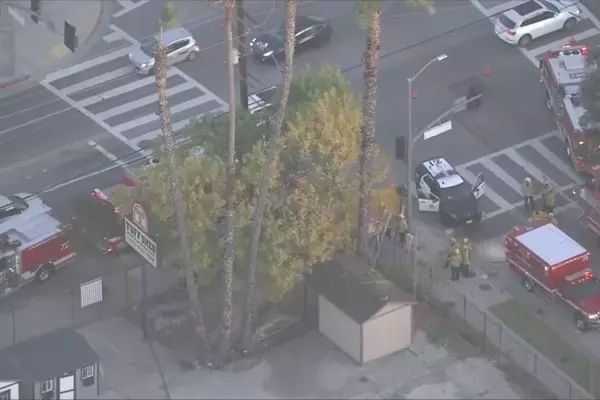
Charlie Jackman loves attending his school with his brother and friends. During his eight years there, he’s won art awards and started his own small business.
But next year, the 16-year-old will be starting year 11 at a new school because his Anglican college says it doesn’t have the resources to successfully guide a student with autism through the VCE.
Jackman’s mother, Susanne West, says the practice of “shoulder tapping” – moving students on once they reach their high school certificate – is all too common for neurodiverse students.
About 11% of people with a disability aged between 15 and 24 who acquired disability before age 15, have left school before age 16, the latest data shows, compared with 3.6% of those without a disability.
And while two in three Australians aged 20 and over have completed year 12, that drops to one in three among people with a disability.
This month, West wrote an open letter to her son’s school. She has been swamped with feedback from parents who have experienced the same thing.
“It needs to stop happening,” she says. “Inclusion isn’t just a word on an advertising brochure ... for families who walk the road with neurodiverse young people, fighting for equity is part and parcel of the daily challenge.”
In late July, on the cusp of subject selections for the final two years of high school, West was informed by the school that it couldn’t foresee a successful year 11 and 12 pathway for her son.
While not told outright that Charlie couldn’t continue, “there was a very clear message that we ‘explore alternative settings’,” West says, adding she wasn’t the only parent to be told the same thing.
“[They said] it was all too hard, they didn’t want to put resources there. We felt incredibly let down. Charlie needs support with his learning – more time, adjusted curriculum and tasks broken down into manageable pieces.
“[But] Charlie gets there in the end. He works and tries so hard.”
Research indicates students with disabilities continue to experience discrimination at Australian schools at high rates, with parents often being advised to send their children to schools with better support, or being told a school has funding issues.
Students with disability are also segregated from other students, suspended and expelled at higher rates than children who don’t have a disability.
The practice tends to be more prominent in private schools, which compete for enrolments and high exam results, and aren’t required to run open enrolment processes.
Peter’s daughter should be attending year 12 this year in Geelong. Instead, the 17-year-old has dropped out and is reluctant to leave the home due to poor experiences at school.
“She’s beside herself,” Peter says, who is withholding his surname to protect his daughter’s identity. “She feels excluded, unseen, unheard, unvalued.”
In year 10, Peter was advised his daughter, who has autism, shouldn’t attempt the VCE.
She wants to teach English in Japan – a goal that requires a VCE certificate – and that is possible if she has adequate support, Peter says.
“The education community think it’s too hard, handball it elsewhere, and just say, ‘We don’t have the appropriate environment for her needs’. They’ve failed my daughter completely.”
Peter and his daughter have experience with the private, public and Tafe system, and Peter says it doesn’t just come down to funding.
“Schools won’t accept reasonable adjustments in how curriculums are presented. Teachers are overwhelmed and underpaid, and it’s too hard. Forget a glass ceiling, you can’t even get in building.”
While studying year 11, his daughter was unable to receive online course materials when she couldn’t attend school, wasn’t allowed to bring her support dog or support worker to tests, and often had no access to a “quiet room” because it was used for other purposes.
Late last year, she had a breakdown and dropped out.
“People don’t understand what inclusion means,” Peter says. “We’ve got the frameworks, but when push comes to shove, they don’t listen.”
Children and Young People with Disability Australia (CYDA) says urgent federal government investment is needed to prevent exclusion and enrolment refusal of students with additional needs.
A recently released survey commissioned by CYDA found just 35% of families felt teachers and support staff had adequate training and knowledge to support their children.
“Discrimination is significantly impacting the education and wellbeing of Australian students with disability,” CYDA chief executive, Skye Kakoschke-Moore, says.
“We need to see [the] delivery of full inclusion for all students in mainstream schools.”
Charlie will begin at a new school in 2024. But his mother wants to know how a child can be “effectively discarded” from a school he loves – whether due to funding and resources, or concern over Atar results.
“Does inclusion end when year 11 and 12 approach?” asks West. “Leaders need to be able to walk in the shoes of families. It’s not just a decision to offer a program, it’s the genuine social, emotional impact.”







